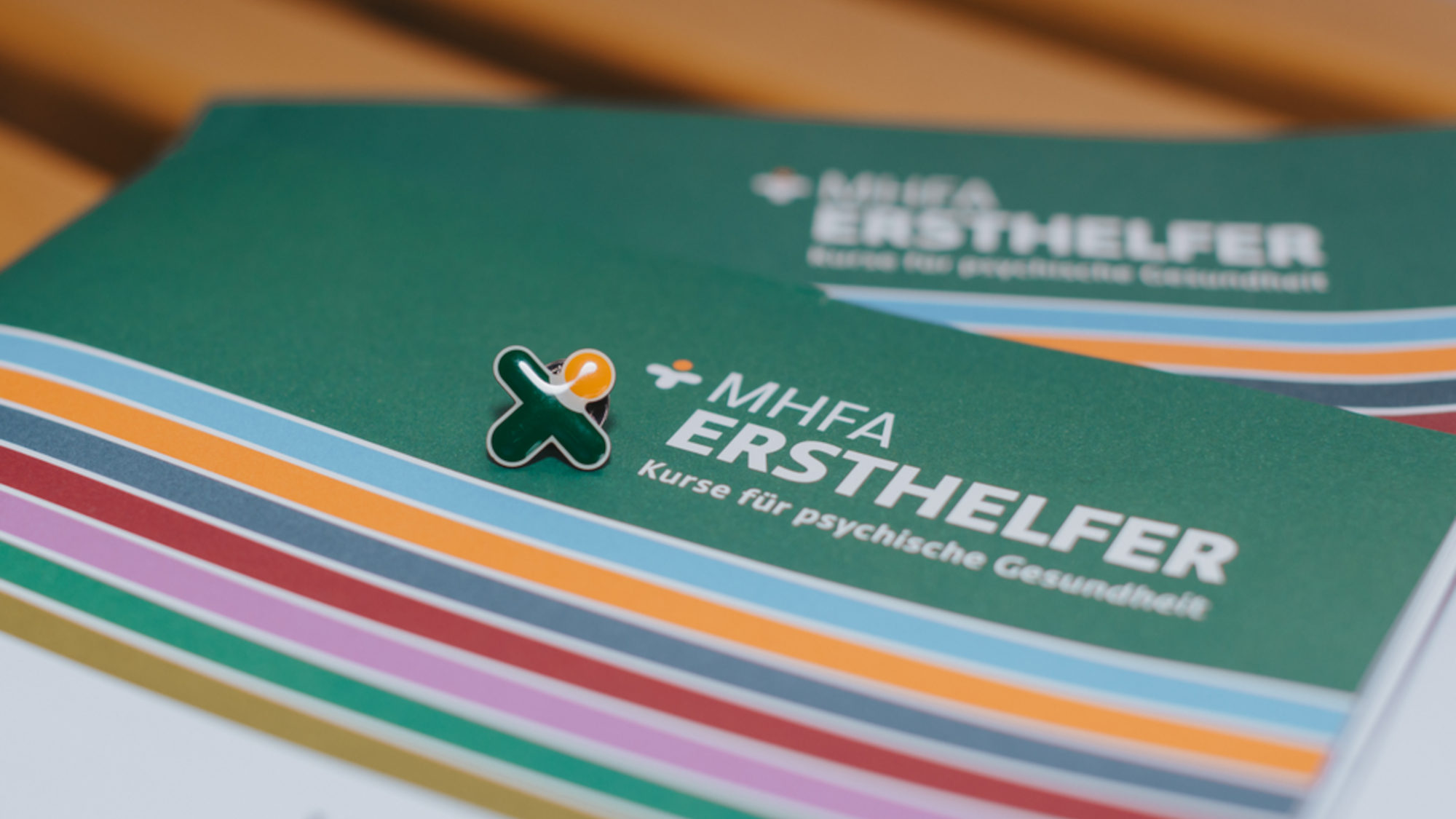
© Matej Meza / Universität Bremen
Mental Health First Aid
The University of Bremen offers “Mental Health First Aid” service to train first responders for mental health crises
First aid courses teach how to treat a wound or how to put a patient in the recovery position. The emergency which requires such treatment is very clear in most cases. Less clear is what to do if an employee shows signs of addiction, a student reports anxiety disorders, or a colleague expresses suicidal thoughts. In order to provide first aid in such emergencies, the Workplace Health Management Office now offers employees of the University of Bremen training as first responders for mental health crises in the “Mental Health First Aid” training program. Simone Oelze and Alexandra Baumkötter from Human Resources Development talk about the training, and why it benefits all university members.
“An important part of this training is to address a mental health issue or crisis with those affected to help them receive treatment more quickly,” explains Simone Oelze of the Mental Health First Aid (MHFA) training program. The courses are not aimed at diagnosing diseases, but at helping to recognize warning signs more quickly, how to address those affected, how to have a sympathetic ear, and how to encourage them to seek help. “Often, the first instinct when those suffering hint at a mental illness is to refrain from mentioning it again. The threshold for speaking about it is enormously high. This increases the risk of those affected withdrawing even more, which can be very counterproductive in some illnesses such as depression,” says Alexandra Baumkötter. The training provides first responders with a toolbox for various situations and thereby increases their ability to give support.

© Matej Meza / Universität Bremen
Dr. Ulrike Wolf-Brozio, who was trained in November 2023, is one of the University of Bremen’s first responders. She advises students on questions related to their degree in the Faculty of Geosciences. During her work in the Academic Advisory and Career Orientation Office, she encountered situations in which she was exposed to students’ mental health problems or crises. “I often asked myself how to best deal with it. Do I address the issue? If so, how do I approach it?” Many employees at the university’s counseling centers experienced situations similar to those described by Ulrike Wolf-Brozio during the pandemic, noted Alexandra Baumkötter. After a series of workshops on mental health for researchers, which health management organized together with the university institution “Bremen Early Research Career Development” (BYRD) and the Welcome Center, Alexandra Baumkötter first became aware of the “Mental Health First Aid” training program.
The training addresses the most common mental illnesses in society such as addictions, depression, and anxiety disorders with the help of case studies, film clips, and role-playing. Participants can gain some understanding for how people with psychosis feel by listening to a jumble of noises through headphones. Using role-play, they can practice addressing those affected by an alcohol addiction. This not only empowers future first responders to take action, but also reduces stigmas about mental illness. Ulrike Wolf-Brozio feels more confident after the program, but also notices: “It is a process and you have to continue to work on yourself even after the training in order to deal with such situations professionally and to provide a safer space for those affected. I think it makes sense in any job to take a closer look at the topic, as it affects us all.”

© Matej Meza / Universität Bremen
The training program was developed over 20 years ago in Australia. It is already in use worldwide and in Germany since 2019. Only one provider per country has the rights to the program. In Germany, the Central Institute of Mental Health Mannheim sponsors the program. Although the training is not free, the institute is non-profit and is committed to the program’s effectiveness, quality, and evaluation in order to achieve valid results, says Simone Oelze: “The program has strict specifications. Only well-trained experts, mostly psychologists with clinical experience, can become certified trainers, and then train the first responders. In addition, participants will be asked about their experiences one year after completing the course.” The training of the first responders at the University of Bremen is provided by an instructor who knows the university structures and can incorporate targeted examples. Both Alexandra Baumkötter and Simone Oelze have been trained as first responders for mental illnesses to test the program first-hand. Alexandra Baumkötter explains: “After the course, I really did feel more competent in addressing mental health issues with those around me and now have less prejudices and inhibitions in this area.”
So far, 36 employees at the University of Bremen have received training in the “Mental Health First Aid” program. A meeting for trained first responders recently took place for the first time in cooperation with the Psychological Counselling Centre of the Studierendenwerk Bremen (PBS), and allowed responders to talk about their previous experiences, reports Simone Oelze. “We noticed during the course the pressing need of participating employees to discuss their experiences, because there had so far been no platform for this.” Currently, the mental health first responder training is primarily for employees in consulting situations at the University of Bremen; in the future, this will extend to teaching and leadership staff, and potentially to all interested employees. If the training courses continue to be well received, the next step is already clear, says Simone Oelze: “In the future, we want to form a network in which first responders can exchange ideas and be contact persons for employees who need support in dealing with employees and students with mental illnesses.”
Further Information about the Training
The next “Mental Health First Aid” courses will take place on June 6 and 20 as well as September 12 and 26, 2024. Each training is divided into two days of six hours each. A written test must be taken at the end of the training. There are 14 spots available. In case of high demand, additional courses can be offered. Participation must be coordinated with supervisors and is currently fundamentally limited to employees with a consulting function. Another prerequisite is that the participants should feel mentally stable, as the course addresses topics such as suicide, depression, and the like. Registration is possible via the health management website.
The “Mental Health First Aid” training program at the University of Bremen is supported by the Techniker Krankenkasse.
Website of the MHFA first responders (in German only)
Video about research on the effectiveness of MHFA (in German only)